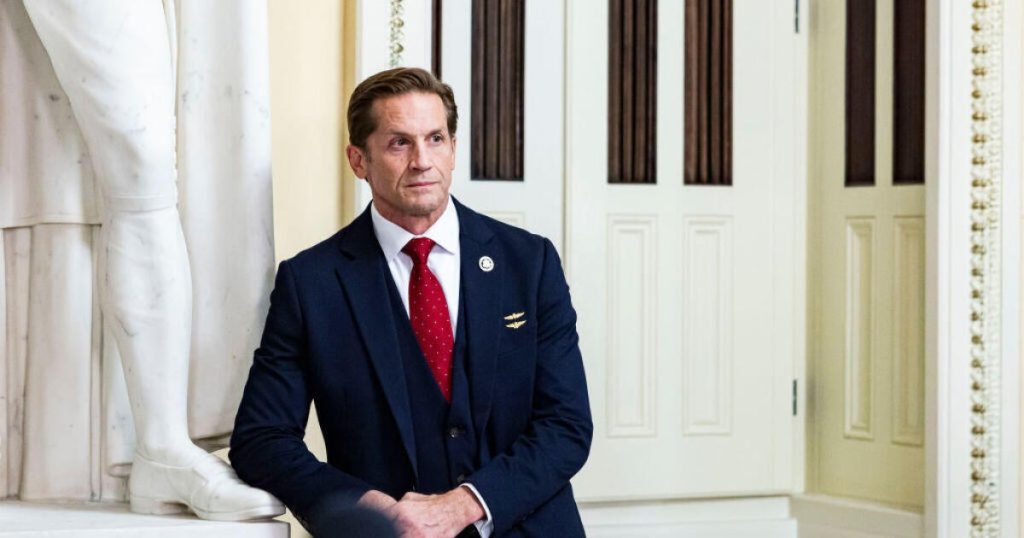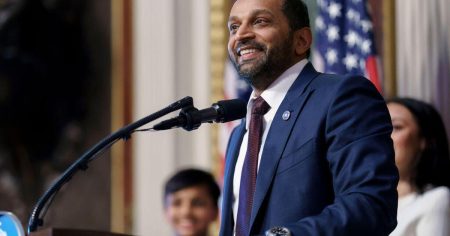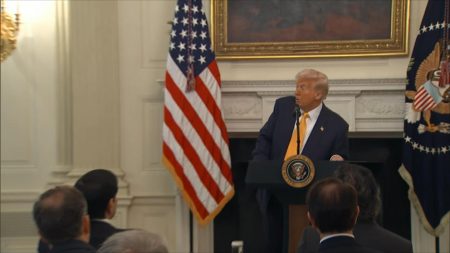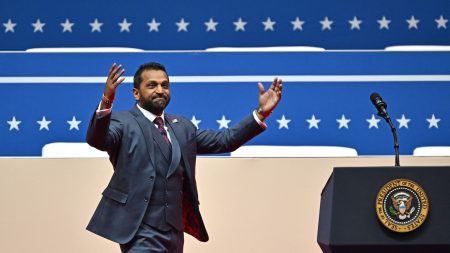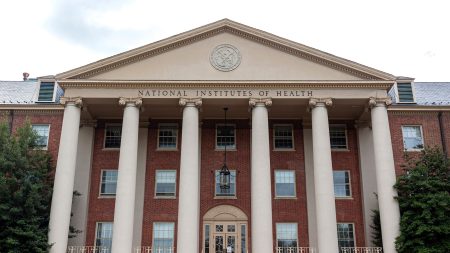Republican Lawmakers Face Backlash Over Trump’s Budget Cuts and Federal Layoffs
The recent budget cuts and layoffs implemented by the Trump administration, spearheaded by the Department of Government Efficiency (DOGE) led by Elon Musk, have sparked widespread outrage among constituents. As Congress remains in recess, Republican lawmakers have been confronted by angry voters during town halls and local events. These gatherings have provided a platform for constituents to express their frustration over the sweeping cuts and the layoffs of federal workers. The backlash underscores the growing divide between the administration’s fiscal policies and the concerns of voters, even among those who identify as Republicans or conservatives.
Rep. Rich McCormick of Georgia faced a particularly heated town hall in Roswell, where attendees criticized the administration’s approach to layoffs as "radical," "extremist," and "sloppy." One constituent highlighted the irony of the administration rehiring some employees, including those working on critical issues like bird flu and nuclear weapons programs, after initially laying them off. Another attendee accused President Trump of acting like a "king" and demanded that McCormick take action to "rein in the megalomaniac in the White House." McCormick’s response, which drew comparisons between the crowd’s criticism and the January 6, 2021, Capitol riot, only fueled further anger, with many in attendance booing and calling out, "Shame!"
The Roswell town hall was not an isolated incident. In Oklahoma, Republican Rep. Kevin Hern faced questions about Musk’s influence on the administration and whether Congress would conduct oversight of Trump and Musk. Hern deflected, suggesting that oversight of the executive branch should be left to the judicial system. Meanwhile, in Wisconsin, Rep. Scott Fitzgerald was pressed on DOGE’s actions and whether Congress would subpoena Musk to testify. Fitzgerald acknowledged that scrutiny of DOGE’s decisions would eventually fall to committees like the Ways and Means Committee but emphasized that such action was not currently feasible.
Calls for Congressional Oversight and Checks on Executive Power
The town halls have also highlighted a broader concern among voters about the balance of power in government and the role of Congress in holding the executive branch accountable. In Alaska, Rep. Nick Begich held a telephone town hall where a constituent emphasized the need for checks and balances on the executive branch. The man, who identified as a lifelong Republican, expressed concern that the administration is willing to "push or remove the guardrails" on executive power. Begich acknowledged the concerns, noting that he has received numerous questions on the topic and predicting that legal challenges to the administration’s actions would likely end up in the Supreme Court.
In Oregon, Rep. Cliff Bentz faced similar questions during a town hall in Baker City. A tearful constituent accused Congress of passing "unsustainable" budgets and shifting the burden onto working-class Americans. She criticized lawmakers for blaming Democrats and relying on the courts to address the fallout rather than taking responsibility themselves. Bentz acknowledged the "serious question" of whether the president’s actions in reducing the federal workforce were within constitutional limits but reiterated his belief that the courts would ultimately hold the administration accountable.
State-Level Concerns and the Broader Debate Over Government Spending
While many Republican lawmakers have avoided directly criticizing President Trump and Elon Musk, some have expressed concerns about the impact of the budget cuts on their states. These concerns highlight the tension between the administration’s fiscal agenda and the practical realities of governance. For example, cuts to federal programs and workforce reductions could have ripple effects on local economies and essential services. However, critics argue that the administration’s approach has been neither methodical nor humane, leading to unnecessary hardship for federal employees and their families.
The debate over the budget cuts and layoffs also reflects a deeper philosophical divide over the role of government in society. While some conservatives support reducing the size of the federal government, others argue that such reductions should be implemented responsibly and with consideration for the human impact. As one independent voter in Oregon emphasized, "I’m all for fiscal responsibility and downsizing the government. We’ve been through downsizing before, and you can do it in a way that is humane and treats people with dignity."
A Look Ahead at the Ongoing Debate
The backlash against the Trump administration’s budget cuts and layoffs is unlikely to subside soon. With the midterm elections approaching, the debate over government spending, executive power, and congressional oversight will likely remain a central issue for voters. Republican lawmakers will continue to face pressure from constituents who are demanding more accountability and transparency in how the administration implements its fiscal policies. Meanwhile, the legal challenges to the administration’s actions will proceed through the courts, setting the stage for potential landmark decisions on the limits of presidential authority.
As the country navigates this contentious period, one thing is clear: the decisions being made today will have far-reaching consequences for the future of governance, the federal workforce, and the millions of Americans who rely on government programs and services. Whether through congressional action, judicial rulings, or the ballot box, the voices of concerned citizens will play a critical role in shaping the outcome.
Contributors to this report include Jared Eggleston and Alan He.
Caitlin Yilek is a politics reporter at CBSNews.com, based in Washington, D.C. She previously worked for the Washington Examiner and The Hill, and was a member of the 2022 Paul Miller Washington Reporting Fellowship with the National Press Foundation.





